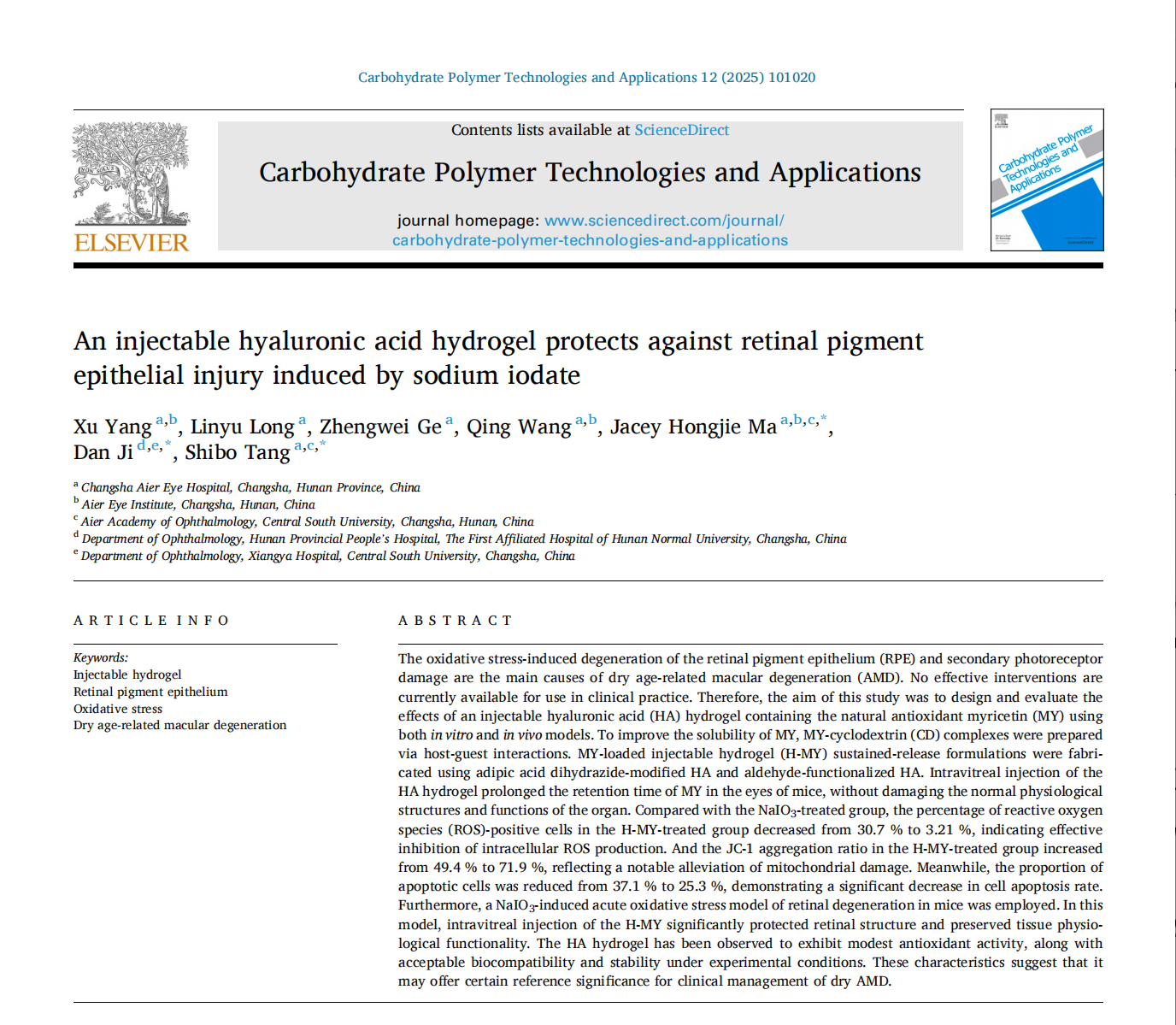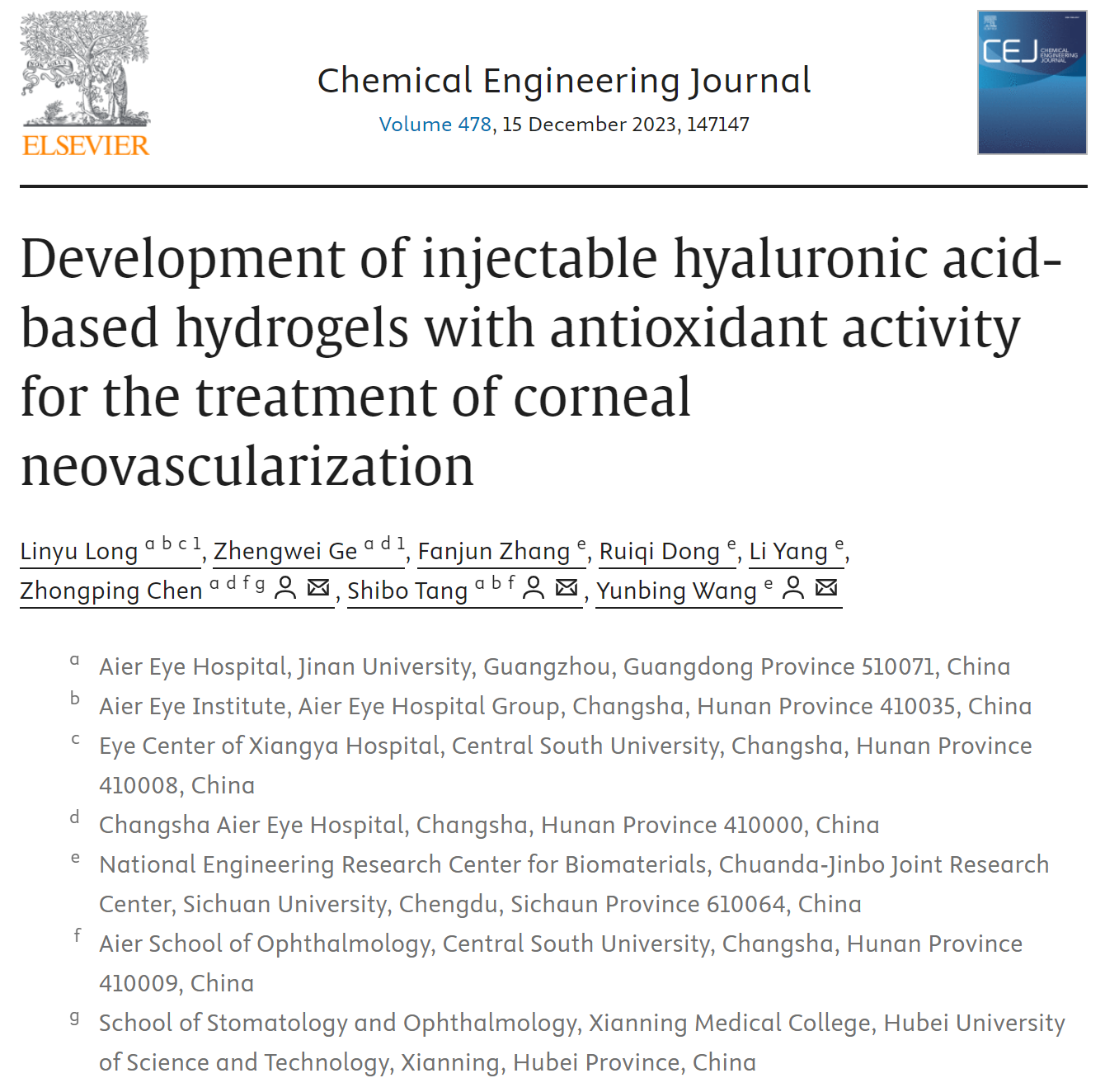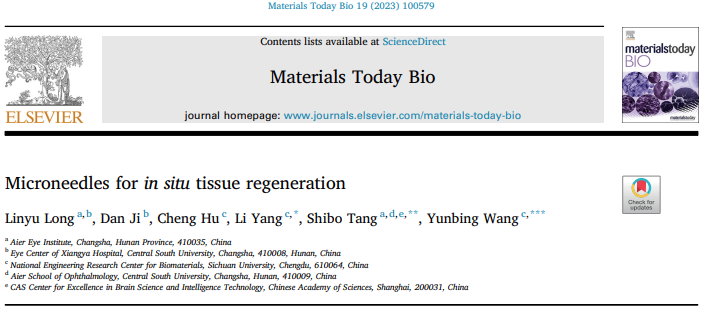- 首页
- 关于我们
概况介绍 研究方向 人才培养 委员会/committee
- 员工团队
特聘专家 主要领导 行政团队 技术团队 PI团队- 科研平台
中心实验室 实验动物中心 生物样本库- 最新资讯
- 首页
- 关于我们
概况介绍 研究方向 人才培养 委员会/committee
- 员工团队
特聘专家 主要领导 行政团队 技术团队 PI团队- 科研平台
中心实验室 实验动物中心 生物样本库- 最新资讯
An injectable hyaluronic acid hydrogel protects against retinal pigment epithelial injury induced by sodium iodate发布日期: 2025-10-01
ABSTRACT
The oxidative stress-induced degeneration of the retinal pigment epithelium (RPE) and secondary photoreceptor damage are the main causes of dry agerelated macular degeneration (AMD). No effective interventions are currently available for use in clinical practice. Therefore, the aim of this study was to design and evaluate the effects of an injectable hyaluronic acid (HA) hydrogel containing the natural antioxidant myricetin (MY) using both in vitro and in vivo models. To improve the solubility of MY, MY-cyclodextrin (CD) complexes were prepared via host-guest interactions. MY-loaded injectable hydrogel (H-MY) sustained-release formulations were fabricated using adipic acid dihydrazide-modified HA and aldehyde-functionalized HA. Intravitreal injection of the HA hydrogel prolonged the retention time of MY in the eyes of mice, without damaging the normal physiological structures and functions of the organ. Compared with the NaIO3-treated group, the percentage of reactive oxygen species (ROS)-positive cells in the H-MY-treated group decreased from 30.7 % to 3.21 %, indicating effective inhibition of intracellular ROS production. And the JC-1 aggregation ratio in the H-MY-treated group increased from 49.4 % to 71.9 %, reflecting a notable alleviation of mitochondrial damage. Meanwhile, the proportion of apoptotic cells was reduced from 37.1 % to 25.3 %, demonstrating a significant decrease in cell apoptosis rate. Furthermore, a NaIO3-induced acute oxidative stress model of retinal degeneration in mice was employed. In this model, intravitreal injection of the H-MY significantly protected retinal structure and preserved tissue physiological functionality. The HA hydrogel has been observed to exhibit modest antioxidant activity, along with acceptable biocompatibility and stability under experimental conditions. These characteristics suggest that it may offer certain reference significance for clinical management of dry AMD.
Keywords: Injectable hydrogel;Retinal pigment epithelium;Oxidative stress;Dry age-related macular degeneration.
相关文章-
ABSTRACTThe oxidative stress-induced degeneration of the retinal pigment epithel...2025-10-01
-
Corneal neovascularization (CNV) is a condition that can severely adversely affe...2024-09-05
-
Tissue injury is a common clinical problem, which may cause great burden on pati...2024-09-04
- 员工团队
- 员工团队



